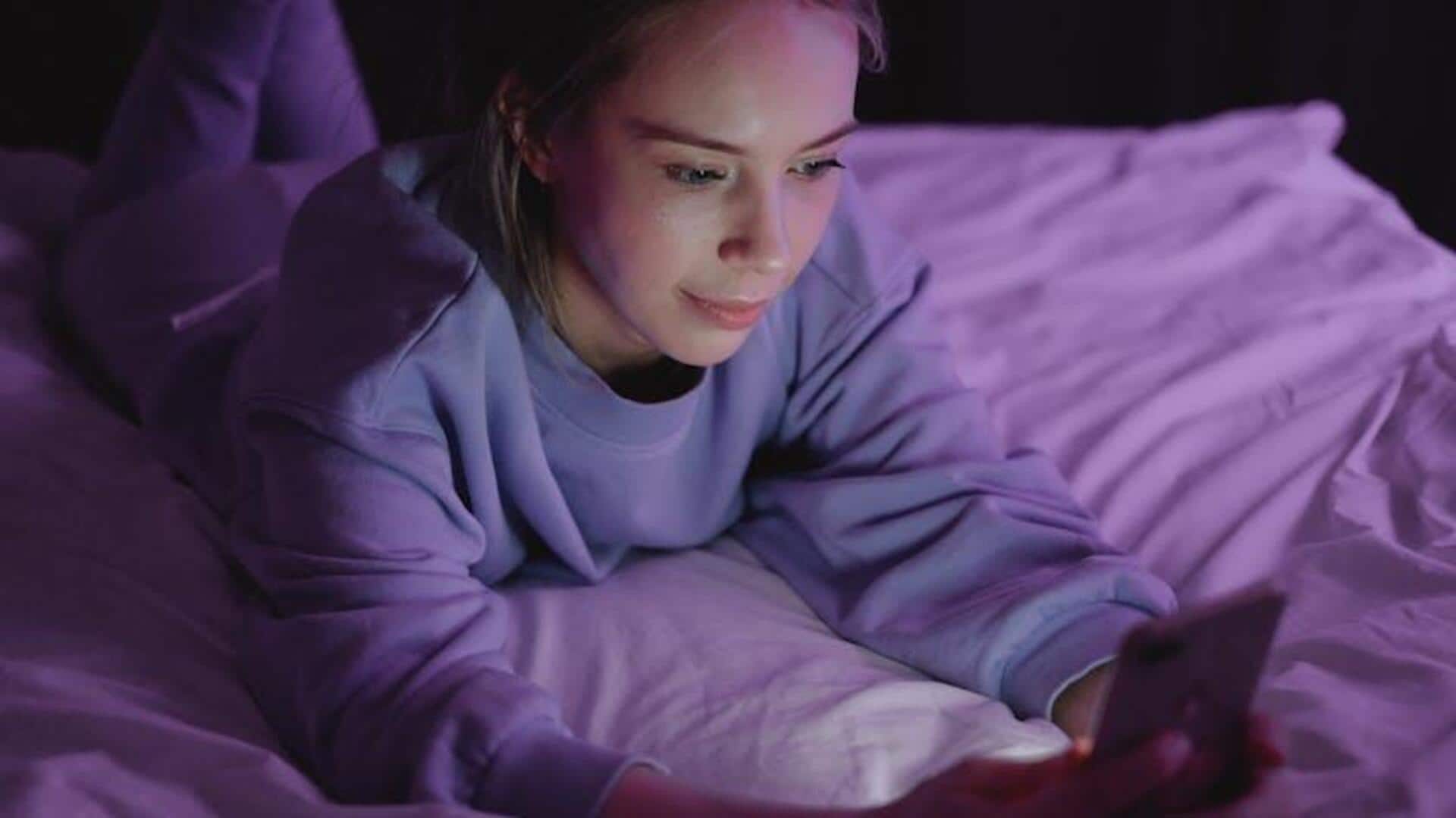
How screen time before bed disrupts your sleep
What's the story
In today's digital age, screens have become an inseparable part of our lives. But, did you know that excessive screen time before bed can interfere with your sleep patterns? Understanding and adjusting your nightly screen habits can improve your sleep quality. Read on to explore practical insights into how screen time affects sleep and suggestions for better nighttime routines.
Reduce exposure
Limit screen exposure before bed
Reducing screen exposure at least one hour before bedtime can work wonders for your sleep. The blue light from screens disrupts melatonin production, which is a hormone that regulates sleep-wake cycles. By limiting screen use in the evening, people can fall asleep faster and have better nights.
Night mode benefits
Use night mode features
Many devices also come with night mode features that limit blue light emissions. Enabling these settings in the evening can help minimize the effect of screens on sleep patterns. Night mode modifies the display to warmer tones, which are less likely to disrupt melatonin production, thereby promoting better rest.
Routine importance
Establish a pre-sleep routine
Establishing a consistent pre-sleep routine sans screens can help signal your body that it's time to wind down. Activities like reading a book or practicing relaxation techniques like meditation can be great substitutes for screen time, preparing your mind for sleep. Such routines not only reinforce healthy sleep habits but also lead to a more restful night in the long run.
Track usage
Monitor daily screen time usage
Keeping a check on your daily screen time can show how your own habits are affecting your sleep quality. Many apps already keep a record of how much time you spend on your device on a daily basis, providing a good basis to make informed changes. By analyzing your usage, you can set realistic goals for minimizing unnecessary pre-bed screen time.